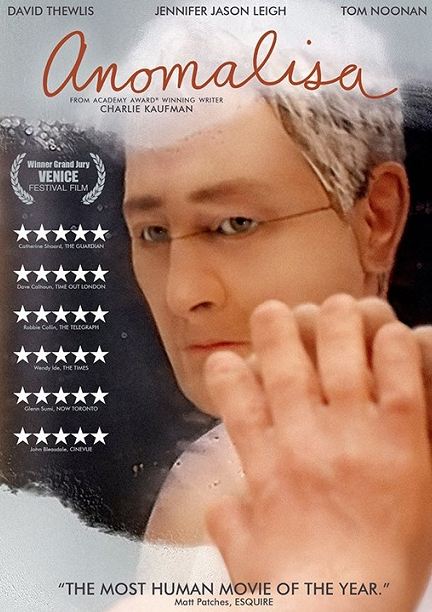
‘Anomalisa’ Movie Review
In Charlie Kaufmann’s Anomalisa, the last whimpers of Nietzsche’s Last Man are seen visible. His is the nadir of the Christian faith and the imperiousness of Christendom which gave the world the momentum to lift it to heights not before imaginable. This was done with the elevation of the ceiling of the pagan Nature to what Schopenhauer deigns the “supersensuous”, with the limits now being God, expanding the room to grow in explaining what it means to be.
But with that knowledge comes the crisis of facing the reality that his God was a false god; his messiah a false one. His culture which knows no other way of being necessarily descends from its heights as it loses a reason for living more, for affirming life by affirming itself. This is the vacuum which the Last Man has subsisted in, like a frightened varmint living underground and in hiding from the truth, fleeing the responsibilities for sustaining and promulgating life. He seeks a quiet death, not with a bang but with a whimper.
But his worldview is dying. The crisis of the Last Man has a terminal end, as his brief history on the world stage is seen with ever greater lucidity. Anomalisa is a testimony to this absurdist life. One prominent characteristic of the Last Man is his alienation from survival, the most essential aspect of his life. To be or not to be is answered with a Jonah-esque prompt of evasion. The evasiveness may be simple to self-rationalize, as is likely with the case of the protagonist in the film: a best-selling author of an extremely esoteric subject of customer service representative success who now lives off of book touring. This is survival in some sense; he is making ends meet by being something so specialized it feels manufactured.
Yet his life feels hollow as a result. So, then what would describe the survival that is not fraudulent? An authenticity to his existence which can only be realized, actualized, materialized by the element of danger to being. It is this element which has been voided, obliterated, and extinguished from Western civilization because of its hazard. Because, on the whole, the sociology which dominates postmodern Western man and engenders life-denial is proletarian, lacking the courage to risk being alive and choosing to live safely.
This fear involves a fear in creating value that has never been. It is not in propagating what is value, say customer telephone support, to a further distillation of itself. The machinations are artificial, and in a Marxian sense are an alienation of labor for the simple reason no person aspires to be answering phone calls for a third of their waking day. An authentic being, however, has a severe element of uncertainty in becoming; in a struggle to master fate. Such a struggle invariably results in suffering, and thus this is a compact way to explain the root cause of the death of world-cultures – to reiterate Nietzsche: to live is to suffer, to survive is find meaning in the suffering. When there is no reason for being, the absurd emerges.
And in the film, absurdity exposes itself as fundamentally hedonic. The book touring malcontent finds an escape or relief from his aimless and synthetic existence by drinking and shagging. But the women he has available to him are clearly not exquisite, they are, basically, whatever he can get. Even if they were choice specimens, the pastime is still just a way to evade the obligation of man to find meaning, to create values for how he becomes.
But what a burden this is! Such responsibility to put on one life. Most cannot afford to make such an excursion because of the sheer impracticality. They do not possess the leisure to exercise a mentality toward a prominence within the spiritual domain of human life. What little leisure they do have will be spent on base pleasures, as a kind of relief from their material condition. What they sustain, however, is the lattice for those who have the privilege to exercise their leisure appropriately.
Obviously, the film does not attempt to examine this tangential question on how a man ought to live when given freedom. It is, again, an expose on the dreary ending to a life unexamined in an age of material decadence bequeathed by Christian civilization, where every person and their life is wooden and dull carbon copies.

